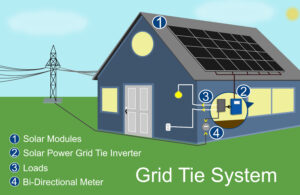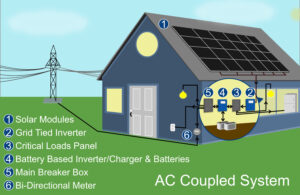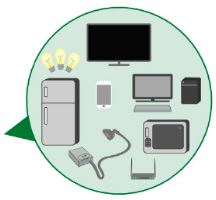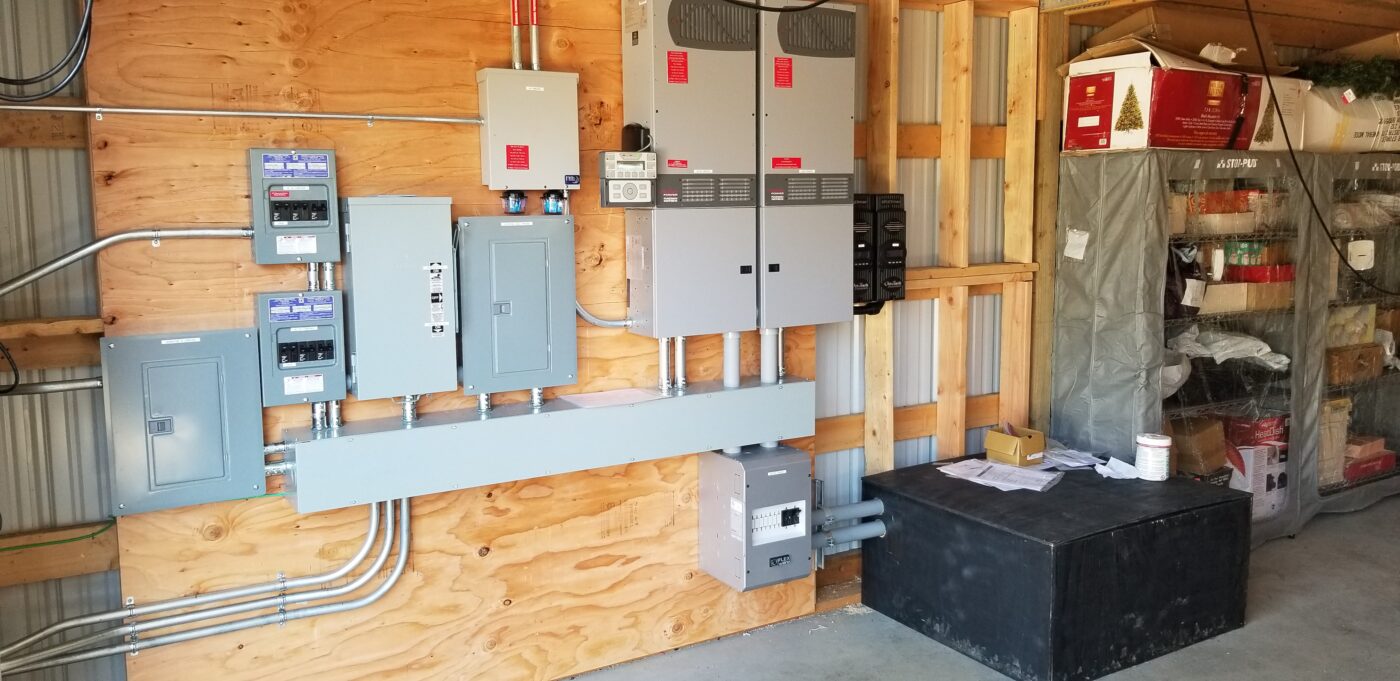AC Coupling: Adding Batteries to a Grid Tie Solar System
AC Coupling: Adding Batteries to a Grid Tie Solar System
The unfortunate truth is that the grid is reliable until it isn’t and being without electricity is a modern-day inconvenience. You already have solar but want power during an outage. Now what?
What if we told you that you can add emergency battery backup without throwing away your current system? This process is known as AC coupling.
Why doesn’t a grid tie solar system provide power during an outage?
 The main reason grid tie solar systems don’t provide power when your utility is down is for safety. Electrical codes require that when grid power goes out, a power inverter must automatically shut off. It is important for your inverter to shut off because it is unsafe to have power produced by your panels traveling into the grid while line workers are trying to restore utility power to your neighborhood. That means that if you want power during an outage, you will need an alternate source such as a generator or battery backup that cannot back feed to the grid.
The main reason grid tie solar systems don’t provide power when your utility is down is for safety. Electrical codes require that when grid power goes out, a power inverter must automatically shut off. It is important for your inverter to shut off because it is unsafe to have power produced by your panels traveling into the grid while line workers are trying to restore utility power to your neighborhood. That means that if you want power during an outage, you will need an alternate source such as a generator or battery backup that cannot back feed to the grid.
What is AC Coupling?
AC coupling is a way of adding battery backup to an existing grid tied solar power system. Your existing system remains unchanged, except that when your utility goes down your grid tied inverter runs power through an added battery-based inverter connected to energy storage (batteries). This new inverter uses power stored in the battery bank to provide electricity to your home when utility power is unavailable.
 How does AC Coupling work?
How does AC Coupling work?
The battery-based inverter is connected to an electrical sub-panel that contains circuits to all the loads you consider essential to use during a utility outage. When the battery-based inverter senses the grid is down, it shuts off power going to the grid automatically and begins to power your essential loads from your batteries.
What happens when the grid goes down during the day?
A transfer switch automatically turns off your connection to the grid and connects to your essential load subpanel. Your battery-based inverter begins providing power from your batteries, which your grid tie inverter senses as “utility” power so it continues to operate. When the sun is out, your solar panels keep your batteries charged and your essential loads are powered from your batteries. Once grid power is restored, your battery-based inverter shuts down and your grid tie inverter reconnects to the grid, powering your entire home as normal.
What about when the power goes out during the night?
It’s about the same as if the power goes out during the day except your solar panels aren’t working to charge your batteries. Instead, your essential loads will use the power stored in your batteries until your panels can produce power again.
 How big does my battery bank need to be?
How big does my battery bank need to be?
Your battery bank’s size depends on what essential loads you want to remain working during an outage. Some essential loads may include; fridge/freezer, well pump, phone charger, CPAP machine, septic pump and a few lights. It is rarely cost effective to backup all loads in a home.
AC Coupling – Is it Really That Simple?
Integrating batteries into a grid tie system at a later date is certainly possible, but unfortunately there are some drawbacks to AC coupling that need to be considered. Sizing a hybrid system to integrate into an existing array comes with design constraints and sometimes it is not possible to use your entire solar array for battery charging without significant and often prohibitive expense.
Conclusion
In short, it is not ideal to design this way “out of the gate” because down the road you are installing a completely separate inverter and battery bank where you likely can only integrate some of the solar array. If you know you’re going to want battery backup with solar, it’s always simplest and most cost effective to do it all at the same time. However, if you already have an array, AC coupling can provide you all the comfort and convenience you want and deserve when your grid power fails.

